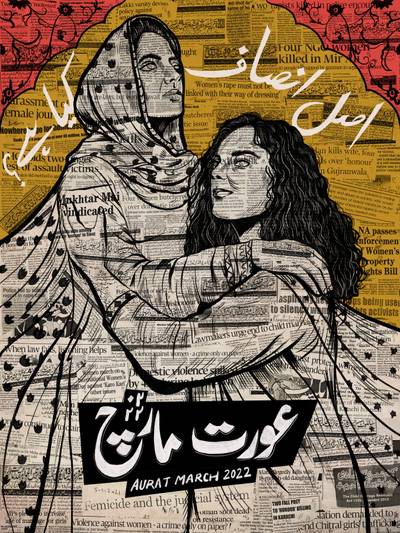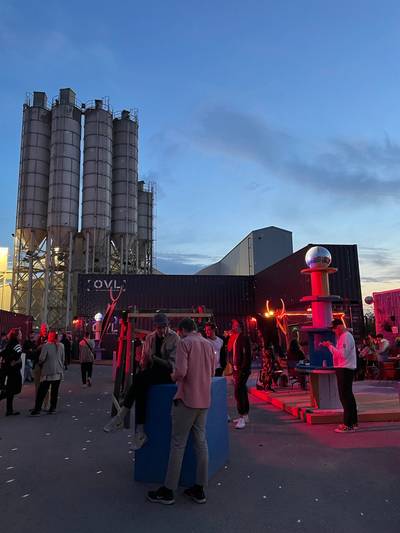

Essays
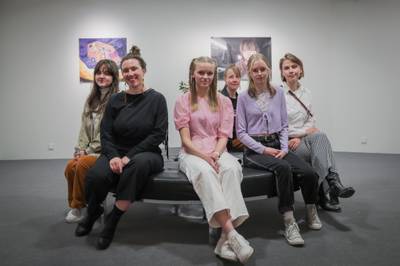

Nuori Taide and other cultural youth work organisations need funding from the state to guarantee that art and culture services are accessible for all young people, regardless of their living situation. What worries me is how the changes in the government may change youth policy and its funding. We hope that future criteria for youth work funding will better take into account digital youth work as well as the nature of artistic hobbies.
READNuori Taide: A Forum for Young Art Makers
Anni Rupponen brings together throyughst and artworks of Ansa Kurola, Karoliina Kuusisto, Tiia Tammi, Moona Rantanen, Jenny Idman who share their thoughts on their creative practices and what they wish for in art.
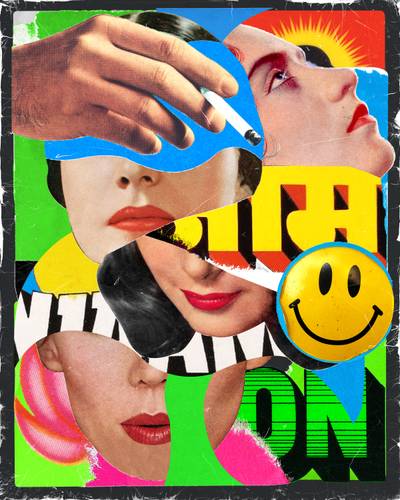

Formal modes of engineering the well-being of the population are oppressive and exclusionary. Activists, scholars and citizens of the world have to find compassionate and strategic ways to enact their power of adaptability. Memes allow us to challenge conventional and restrictive forms of education, policy and collective action, fostering effective solutions for a broken system. Memes, as the new toolkit adopted by Internet users of India, has the potential to nurture democracy and pluralism, with the hope to preserve freedom of speech, freedom of expression, and freedom to resist.
READPOOJA, What Is This Behaviour?: Memes as Political Participation & Toolkit of Digital Resistance in India
Abhinit Khanna discusses meme culture, misinformation, trolling, and data-muddying in times of pandemic and war using the visual language of digital artworks.
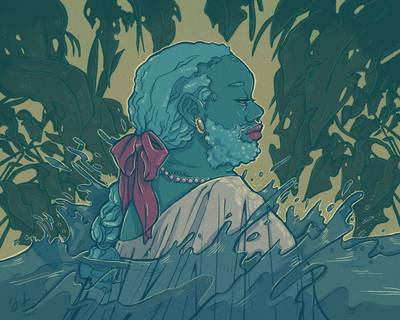

I wish the nurses, doctors, therapists, and psychologists in Transpoli would see all the art Finland’s trans community produces. Would it make them drop their blinders and see us beyond their questionnaire? As deep-sea creatures? As the deep time-travelling bodies? As the air seeping through the saxophone player’s lips? As the space, that is quite a lot of things and can become even more.
READSome Ways in Which a Gender May Be Felt
What if the nurses, doctors, therapists, and psychologists in Transpoli could see all the art Finland’s trans community produces?


The Freedom Riders Persian podcast follows the story and route of the Freedom Riders. They were African American and white Civil Rights activists who took bus trips through the American South in 1961. The 12-episode podcast is like an audio tour of some of the most iconic Civil Rights landmarks. Through this tour and the making of this podcast, we wanted to learn more and raise awareness among the Persian Speaking Communities about the history of racism and the Civil Rights movement in the US.
READFreedom Riders Persian Podcast: A Journey Through the South and the Civil Rights Landmarks
A read-through of a travel journal of interconnected solidarity, the differences, and the common grounds between the Iranian and African American communities.
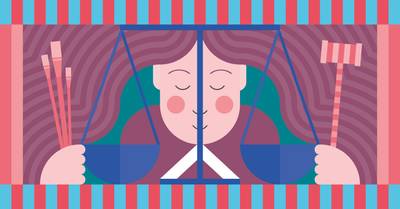

Ahhh, collective work! It’s definitely not for everyone, but I firmly believe that combining our forces is the only way to make change happen. There are many particularities in this type of work, and as a legal worker, I often get questions from working groups who have received a collective grant for a project. The NO NIIN crew and I figured it could be helpful to talk a little about two of the most commonly asked questions: the legal status of a working group and making payments to people not part of the core group. Read on!
READSome Notes on the Legalities of Collective Work
On the legal status of a working group and making payments to people not part of the core group.
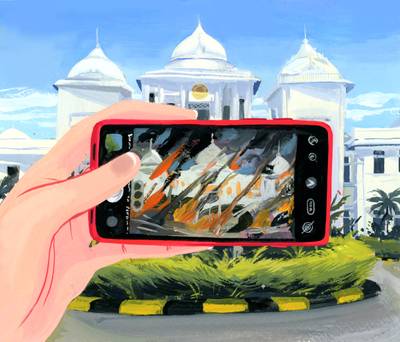

With the end of the war-genocide, a new type of tourism started emerging in Jaffna: war tourism. In this essay, சிந்துஜன் வரதராஜா looks at life inside of a new hotel in the former war zone and explores by way of it the intrinsic relationship of military-occupation with tourism in Eelam.
READLong Before Justice, Tourists Arrive
Sinthujan Varatharajah looks at life inside a new hotel in the former war zone and explores by way of it the intrinsic relationship of military-occupation with tourism in Eelam.


Working together under the name K-oh-llective, we are a group of five artists currently based in Cairo, London, Rabat and Sierre. Ever since we met in 2018, we continued to foster a support system to nurture each other’s practices as we frequently engaged in ongoing and critical conversations. The brainchild of our coming together is an online platform with the same name, where we create a space for resource-sharing, writing about and discussing urgent topics amongst art practitioners in Egypt and the Arab world.
READK-oh-llective: Maybe We’re in a Bad Marriage
K-oh-llective members on creating an online platform for resource-sharing, writing and discussing urgent topics among art practitioners in Egypt and the Arab world.
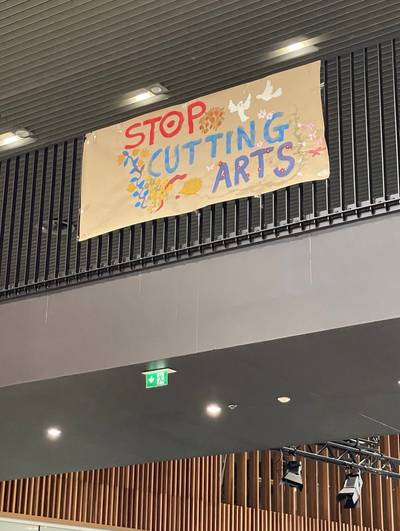

One is reminded of the famous ghost of the Communist Manifesto: students in the Aalto University School of Arts, Design and Architecture have taken to occupy the ARTS building Väre, organising demonstrations and negotiations with the university representatives. Not bad!
READSTOP Cutting Funds for Higher Education in the Arts!
Taina Rajanti breaks down Aalto University’s argument of necessity of cuts in response to the ARTS students’ protesting the cuts, reorganizations of the departments, and the inaccessibility of the school premises.
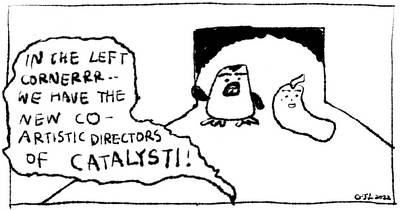

How long can an art association operate under short-term funding? How many fellow organizations suffer from the same problem as Catalysti? Have they found solutions? How does Catalysti stay true to its mission of granting more opportunities as an association under such restrictions?
READA Co-Artistic Director Speaking
Lin Chih Tung on the challenges and aspirations working for an artist-run association. How do you redefine slogans, identify problematics, contemplate contradictions, and convey the message correctly?
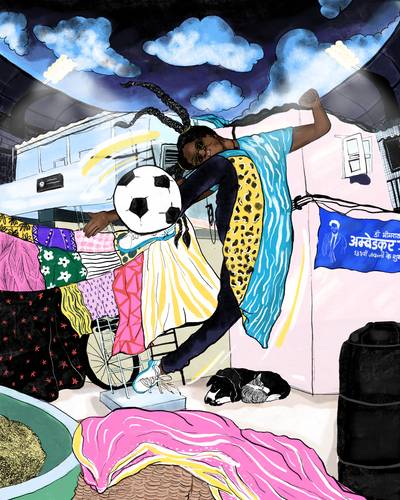

One of the reasons why the sports genre is fascinating is that behind the facade of entertainment, it has many layers of subtext and symbolism attached to it. A well-made sports film hides more than what it reveals. This is why looking deeply at this genre can uncover many nuances and tell us a lot about nationhood, communities, politics, and society.
READWinning the ‘Toss’: A Look at Who Gets a Sports Biopic in India
Anurag Minus Verma asks whose struggle gets a film in an unequal society such as India where caste can privilege as well as oppress.
